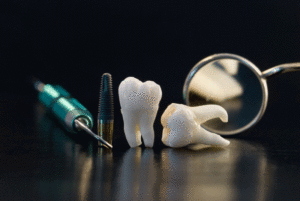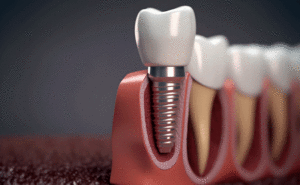You feel a sharp pain in your mouth. It’s throbbing, constant and intensifies when any pressure is applied to the area.
You notice that there’s swelling in the area. You may even be experiencing a fever or headache and notice an unpleasant taste draining from the area in question.
More than likely, you have a toothache.
In honor of National Toothache Day on February 9, this article will take a look at some of the common causes of toothaches, as well as when to seek treatment and how to prevent them from occurring in the future.
Toothache causes
Toothaches can be caused by a variety of things, including:
- Tooth decay
- An abscessed tooth, one that is infected at the root or gum
- A fractured tooth
- A damaged filling
- Infected gums
Toothache treatment
Some toothaches may be minor and pass quickly, but for those lasting more than 2 days or those that are severe or involve other symptoms such as a fever or earache, it’s recommended that you see a dentist immediately. This is important not only to relieve any discomfort that you’re experiencing, but also to properly diagnose the issue and prevent any potential dental infections from spreading elsewhere, such as your skull, face and even possibly into your bloodstream.
In order to treat the toothache properly, your dentist will consult with you and then conduct a thorough oral exam. Based on what is causing the toothache, one of several treatment options will likely be administered:
Filling: If a damaged filling or tooth decay is the issue, the most common course of action is to have it repaired or filled.
Extraction: In more severe tooth decay situations, tooth extraction may be necessary.
Root canal: For more severe toothaches, a root canal may be necessary. Root canals are common if the tooth’s nerve has been infected. This occurs when bacteria works its way into the tooth.
Antibiotics: If there is swelling of the jaw or gums, patients may be prescribed antibiotics after treatment to help the swelling subside.
Prevention
Most toothaches are the result of poor or insufficient oral care. With that being noted, the best way to prevent toothaches from happening in the first place is, simply put, to take better care of your teeth. For starters, you should be brushing at least twice a day and flossing at least once per day. It’s important to keep the surfaces of the teeth clean by brushing and flossing can help keep the gums healthy – as well as removing excess food – by removing plaque from the areas where the teeth meet the gums.
Additionally, limiting foods from your diet high in sugar can help prevent tooth decay, as sugar breaks down into acids that can do great harm to your teeth.
Finally, it’s recommended that you see your dentist for a professional teeth cleaning at least once every 6 months. This can also go a long way toward preventing tooth decay – and toothaches – as, aside from the professional cleaning, any minor issues can be caught and likely corrected before they become bigger ones.
For more information on the causes, treatment and prevention of toothaches, contact Caven Dental today.



